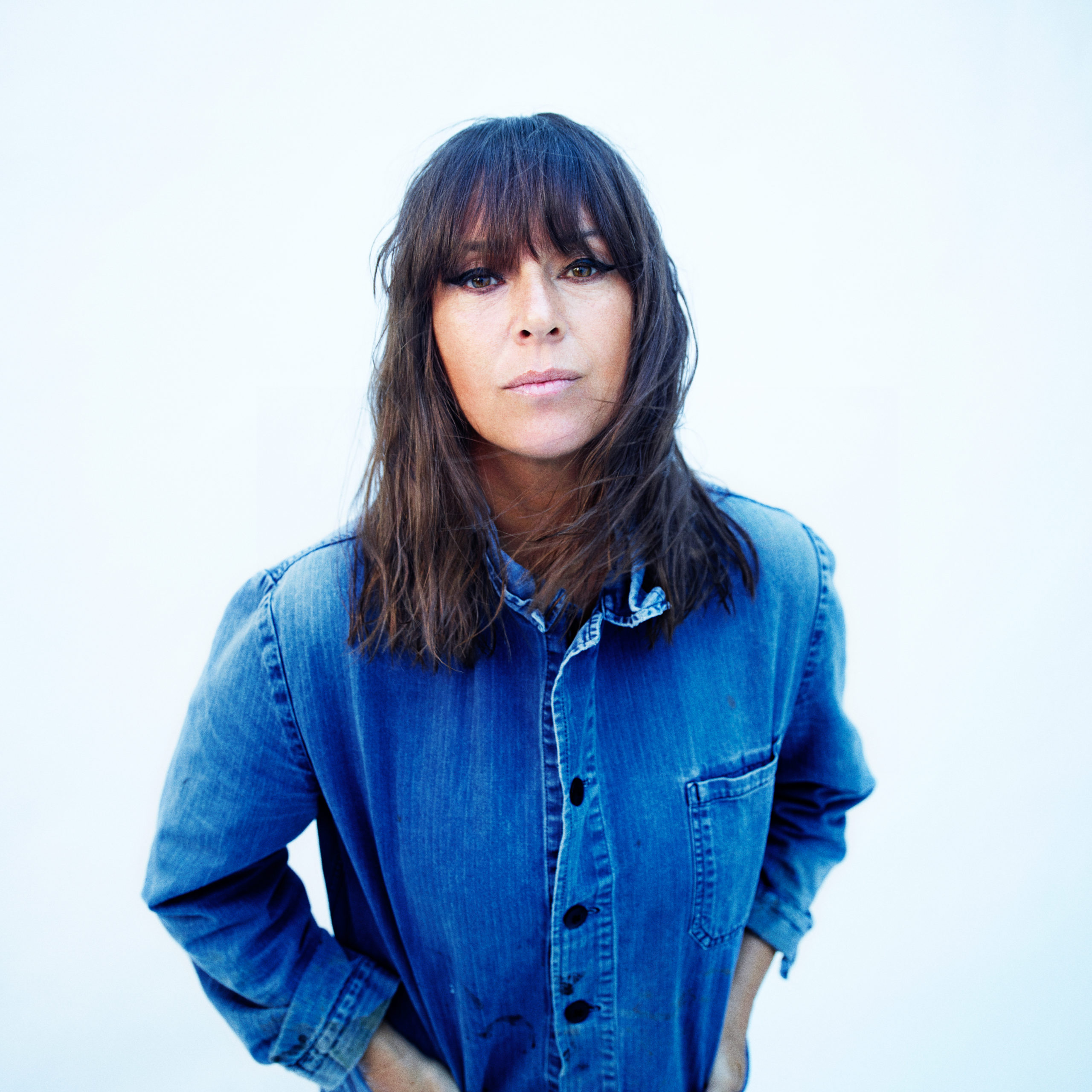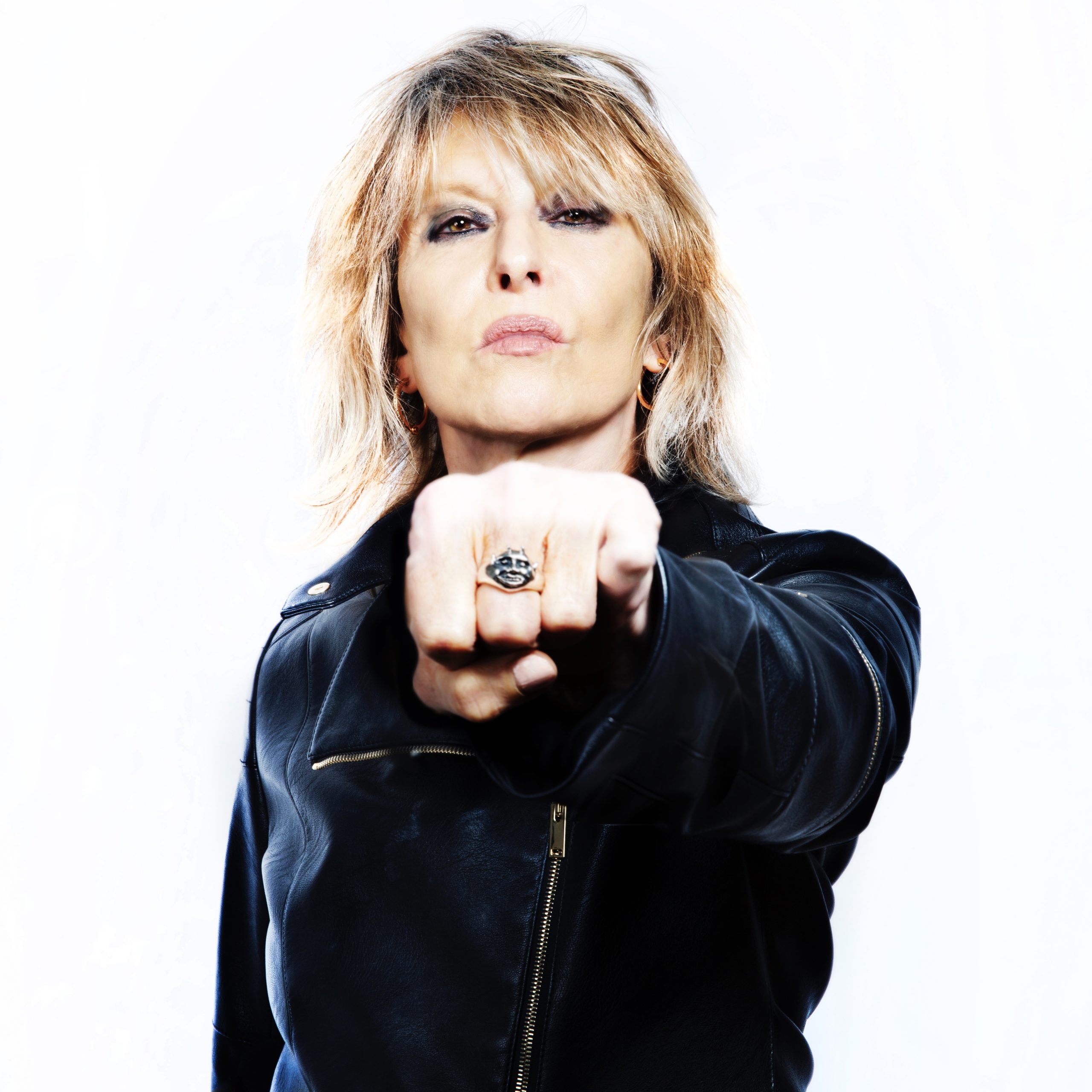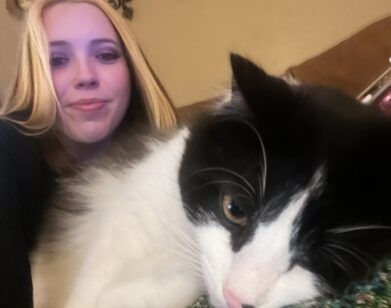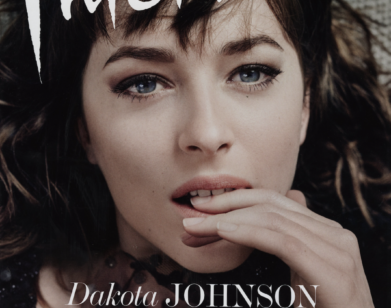in conversation
Cat Power Tells Chrissie Hynde How She Got Her Reputation
The art of covering a song—and doing it well—is an exercise not only in re-imagination, but also in introspection. It requires artists to reach a place of understanding of how an original work altered their own lives and practices before they can share it in a new light that builds upon and enriches that work’s spirit. That’s why, while covers abound, the brilliant ones are, by definition, rare. But it wouldn’t be an overstatement to say that Chan Marshall, known as Cat Power, is behind some of the best ones out there. Over a decades-long career, the singer-songwriter—known for her folk-, blues-, and soul-inflected vocals—has released 10 acclaimed records, punctuated by a number of cover albums including 2000’s The Covers Record and 2008’s Jukebox. The latest of these, simply called Covers, is out today and features re-interpretations of songs like Frank Ocean’s “Bad Religion,” Iggy Pop’s “The Endless Sea,” and Billie Holiday’s “I’ll be Seeing You.” To mark the album’s release, the artist connected with the rock icon and her former tourmate, Chrissie Hynde, for a conversation about bad reputations, camera phones, and the at-times terrifying vulnerability of live performance. —LISA MISCHIANTI
———
CHRISSIE HYNDE: So, I’m going to be a journalist.
CAT POWER: Weren’t you a journalist?
HYNDE: Kind of, but that was so long ago. I was just hanging out and someone who worked for the NME heard me talking about music and said, “You should write for us.” I didn’t really have a job, so I said, “Yeah, I’ll do it.” So, you’ve got an album out.
CAT POWER: January 14th.
HYNDE: You must be fed up with being asked the same questions, so I’m going to ask you the kind of things that fans would want to ask you. Oh, and also questions from the point of view of a fellow artist.
CAT POWER: I love it.
HYNDE: Number one: Do you think of yourself as a musician?
CAT POWER: Yeah. I know that I don’t know how to play, but I know how to play what do I play.
HYNDE: That’s exactly how I feel. I always feel funny saying “musician,” and if I fill out a form, I’ll put “singer” because I think I can just about flag it with that.
CAT POWER: I’ve started saying “recording artist.”
HYNDE: And you’ve been doing this for, what? 25, 30 years?
CAT POWER: 30.
HYNDE: And you’ve somehow managed to stay sort of under the radar, and thereby cool, never becoming mainstream or a “household name.” I don’t know if you did that on purpose, or if it’s because you just never had management up until recently.
CAT POWER: Yeah, up until my son was born.
HYNDE: But it worked. More than any pop singer out there. Well, we’re not pop artists ourselves. I would call you rock and roll, not because of your music but because of your personality. I saw you at The Roundhouse when your hair was short and blonde and you were really in full-tilt rock mode. You did three encores. You walked up to the lip of the stage with a handheld mic. You were throwing flowers to the audience and really talking to them, which was radically different from when we toured together, and you turned your back to the audience. You sang like an angel, but everyone had to look at you crouched down from behind. You’ve gone into these very different modes with your onstage persona.
CAT POWER: Definitely growth.
HYNDE: Yeah, and I saw you at a festival about three years ago, pre-lockdown. It was in East London. And you had a three-piece band. You were in a black velvet dress. I don’t know if you were playing keyboards, but that was a whole different thing, too.
CAT POWER: Hm, I don’t remember that.
HYNDE: I never remember anything. Especially when people refer to gigs, I can’t remember. I can only remember a gig if something went radically wrong.
CAT POWER: Or radically great, for once. When there’s a show where I start vibrating all over the place.
HYNDE: I think I’ve had one or two of those. But as far as seeing other people’s shows, what I really remember is if something goes wrong on stage. I remember if there’s a fuck-up or if someone has a meltdown or if there’s a temper tantrum. And those are maybe the gigs that are the most personal to the audience. Anyway, your album Covers—the obvious question is how did you choose the songs? Did you choose them because you love the artists who wrote them or were they songs that you’d fallen in love with when they came out?
CAT POWER: They were definitely songs that I loved. I got in the studio and I wanted the band to relax, so I started composing improvisationally, just getting them to play certain things that sounded good together. For the first four songs we recorded that day, I had no idea what the vocals would be or what the song would be. They were four songs that I had no intention of covering. I just wanted the band to warm up, and when I got them to play something that I liked the sound of, I went to the vocal booth and I said, “Just don’t stop.” Then I was like, “What cover should I sing over this music that is playing?”
HYNDE: So, you’d get the mood and the atmosphere, and then that would take you to a song.
CAT POWER: Correct.
HYNDE: Cool. Well, that’s a unique way of doing it—but then again, we expect that from you.
CAT POWER: It was really fun, but tense for the band.
HYNDE: So, let’s talk about your reputation.
CAT POWER: Oh god. Can we not? Women always get branded: “It’s time for you to be branded ‘crazy.’” I hate to say it but every man I’ve known, every lover I’ve ever had, every single one of them told me I was crazy at one point or another.
HYNDE: Maybe you are a little bit crazy!
CAT POWER: Well, thank god!
HYNDE: Think about it, could you do this as an ordinary person?
CAT POWER: Yeah, I couldn’t. [Clinking glasses] Cheers to your health, Chrissie. I love you so much. You’re the fucking coolest.
HYNDE: I love you too, here’s to you. So, you’ve had a reputation of being…
CAT POWER: Crazy.
HYNDE: But I’ve been on tour with you. I’ve hung out with you. And I’ve always seen you as pretty regular, emotionally and everything. I haven’t seen you whacked out.
CAT POWER: I’m not whacked out. There was this one record that I did called Moon Pix. The night of the first show, my ex record label invited journalists to the show. I never had that happen before. I was upstairs backstage, about to go down, and when I turned around there’s a guy that I knew from North Carolina. I didn’t know him very well, I just knew that he used to buy dope for Kurt Cobain, and lived in that house when Kurt passed away. And he’s coming towards me and I’m like, “Oh my god. Kevin, is that your name?” And he’s like, “Yeah.” And he lifts up his shirt and he’s got a Glock semi-automatic handgun. And he’s like, “You’re just like Kurt.” And he goes to grab the gun. I could tell from his eyes that he was high on dope. And at that moment, I just said, “Do you want a Coca-Cola?” I was terrified. My heart’s racing right now thinking about it. He’s going to blow my brains out. Without him answering, I opened the fridge and got the Coke. When I turned around, he had let his shirt drop down, and his hand that was going for the gun went out for the Coke. Right then, a friend named Matt Sweeney came backstage. He’s like, “Chan, they’re already playing.” So I said, “Kevin, I’ll see you later.” I walked towards Matt and I was trying to move my eyes to tell him what was happening. I ran downstairs, and there were all these journalists, and I saw my ex record label guy standing there and I said, “There’s a guy upstairs. He’s got a gun. And I know he is on heroin.” And he was like, “You’re crazy. I don’t know what she’s talking about.” So I grabbed the security guard, this huge dude, and I was like, “There’s a guy up there with a gun. You need to call for backup. I don’t know what he’s going to do.” I go out on stage and as I’m playing, I hear tussling. They’ve got him and they didn’t believe me, so they put him out on the floor, they didn’t kick him out or anything. So I’m watching him as I’m playing. On song two, he starts moving around, goes by the bar, just standing around. At song number three, he goes to the other side of the venue and I’m still watching him, not losing my eyeline on him—I want to make sure I know exactly where he is. I get into song number four, and he starts coming through the crowd, really kind of pushing. And that’s when I threw my guitar down, fell to the floor, and just ran out, and that was the end of the show. I was really shaken up. They were like, “What are you doing?!” No one believed me. And then all of these articles came out about how I was a trainwreck. And how I end shows. How I collapsed on stage and all that. And that wasn’t the first guy with a gun. There was another guy in Berlin—they caught and arrested him. A guy in Argentina broke into my hotel room through the window and I had to push him out. Two guys broke into my apartment in Miami. That’s why I had to move to a different place.
HYNDE: I think people who don’t do this—and not that many people do this— don’t really understand.
CAT POWER: They don’t understand.
HYNDE: Certain things freak me out, too. And I’m almost ashamed to mention that these things bother me so much because nobody really understands—this feeling of people getting at you or trying to touch you.
CAT POWER: There are those people where it’s a psychic thing, where they need some kind of energy that you manifest. I call them the soulsuckers. Remember Judah Bower from our tour? He calls them octopuses with their tentacles. They like to get in and trap you so that they have an experience with you. It’s heavy.
HYNDE: I’m not very new age-y. I mean, I am because I’m a hippie, but I’m really practical and very much about common sense. But I do think there’s a certain distance around a person that you can’t see. And some people don’t like other people getting inside of that. After a show, if you meet people, sometimes they can’t help but want to come up and touch you. I’m not very touchy feely anyway, and that freaks me out. And it’s hard to explain to someone how it can really do your head in.
CAT POWER: They’re coming at you. And it’s interesting because people don’t really talk about that.
HYNDE: There are a lot of things—camera phones, they drive me fucking crazy. People don’t understand why the phones are so disturbing. And a lot of new pop artists encourage phones because they want to be on social media.
CAT POWER: For the sales. The numbers.
HYNDE: And they want all that attention. I don’t want that attention. I don’t like attention if I’m offstage.
CAT POWER: I don’t like it either.
HYNDE: I only like the attention for that one moment. But something alters the energy in the place when people are on the phone.
CAT POWER: It’s a real thing that’s tangible, spiritual.
HYNDE: They’ve got another agenda and they’re not quite there.
CAT POWER: It feels very corporate, very CIA.
HYNDE: It fucks the vibe up. And it’s not just because they’re taking a picture, or they’re calling their friend, or they’re scrolling, or they’re just being a general dick. It fucks…
CAT POWER: …the vibration. The journey. The portal.
HYNDE: Yeah, it’s like they’re putting a pinhole in the portal and stuff is seeping out of it or something. It’s very hard to explain to people who aren’t in that position. So, back to your album. You did that Iggy Pop song, “Endless Sea,” right?
CAT POWER: Yeah, do you love that song?
HYNDE: I do. And that album is major to me. In fact, Iggy Pop did something here for a radio show about four years ago, a little live thing. And someone from the record company told me, so I went. And he did that song. I shit my pants.
CAT POWER: I first heard that song and another song that I cover on the record called “I Had A Dream, Joe” when I was 13. My big sister worked at a video store, and she brought home this video cassette called Dogs in Space. Michael Hutchence was the lead actor and it was shot in Melbourne. There were two artists that I learned about from that movie. There was Nick Cave’s first band, Boys Next Door with Rowland Howard. In the movie there was this girl with her hair all teased and she was singing the lyrics to “Shivers.” And then at the end of the movie, a really awful thing happens, but it’s beautiful the way it’s filmed, and I wasn’t sad because the song that they chose was “Endless Sea.” That’s when I first heard that song.
HYNDE: The song’s psychedelic. It’s cosmic. So what are you going to do about touring? How’s that working out? You toured last year, didn’t you? Did you just go with a guitar?
CAT POWER: I’m touring with the same band: Alianna Kalaba on drums, Adeline Jasso on guitar, and on bass and piano and guitar, Erik Paparozzi. But yeah, last year it was just me and a guitar. Most of my career, I’ve been doing it alone like that. I play more shows alone than I have with a band.
HYNDE: I don’t think I could go out just with a guitar. Have you got anything else lined up? How’s it going with cancellations and all that?
CAT POWER: I had a tour booked for September, but it got canceled. That was the only job I had since November 2019, and it was canceled. I was like, “Fuck.” I’d already refinanced my apartment and taken out a personal loan.
HYNDE: Everything got canceled. It all came down.
CAT POWER: Everything fell to shit. And then two days later, I got COVID. I was laid up, and then I got a text saying , “You got an offer to open up for Garbage and Alanis Morissette.” I had $38 when I showed up to the first show in Austin.
HYNDE: Are you still living in Florida?
CAT POWER: Twenty years next month.
HYNDE: With your sort of natural country inflection, have you ever been tempted to do more of a country thing?
CAT POWER: I wanted to do a country record before the record I did called The Greatest. I have this country song called “Good Woman.” My ex record label was just not into the idea. But with The Greatest, for the first time I had this happy, joyful record. I was always suicidal. I got sober for almost two years after that record came out, and it was the first time I ever saw the audience. Through therapy, I was able to understand that I have post-traumatic stress. I was internalizing all this shit, which caused me to drink.
HYNDE: You came out with a better album. Things do work out. Sometimes when we don’t go out one night, we might be pissed off because we missed something that we were looking forward to. But what we don’t know is that we would have gotten killed in a car accident. That was a great album. I’d rather have that than a country album.
CAT POWER: I was always put under the label of “indie rock,” but I never felt part of the culture of it at that time in the nineties.
HYNDE: Most people probably didn’t. That’s why it’s “independent.” Everyone probably felt a little disenfranchised.
CAT POWER: That’s true. But I also kept seeing, like, Blues Explosion and I didn’t find them to be “indie rock” either. I could be wrong.
HYNDE: There is no right or wrong.








